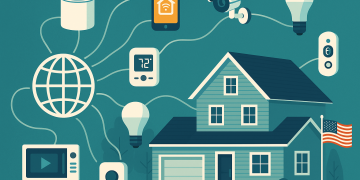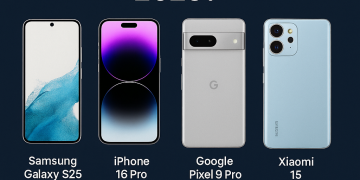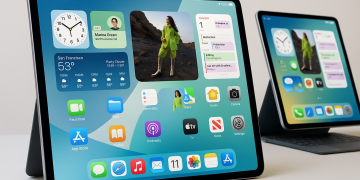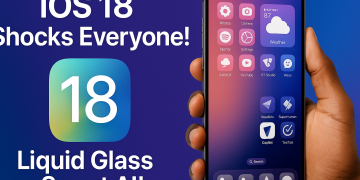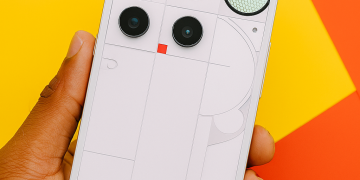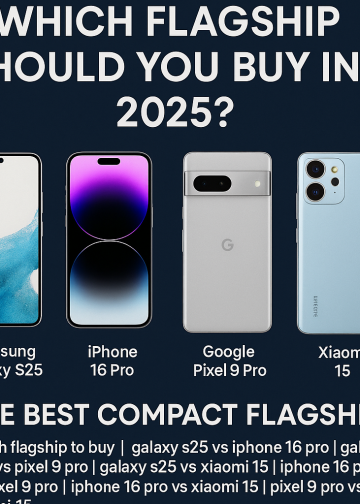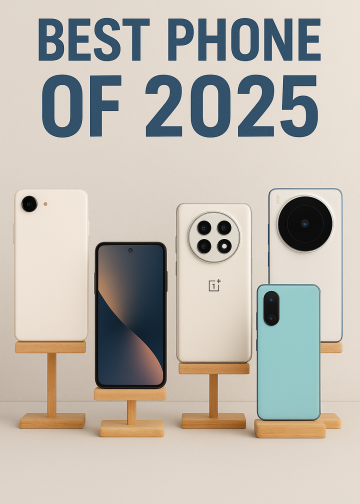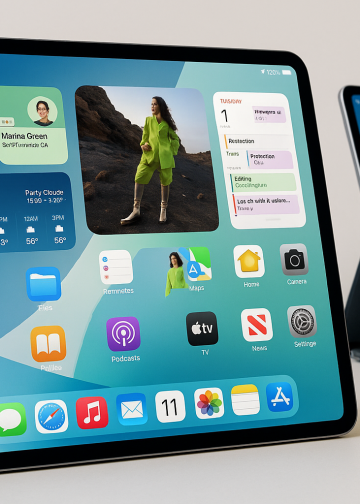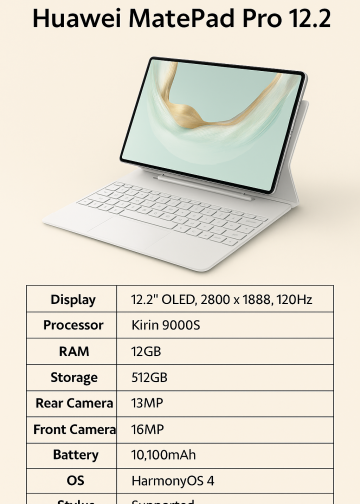App Security in 2025: Protecting Your Data in a World of Mobile Convenience
Introduction: The Double-Edged Sword of Mobile Convenience
Keywords: app security, mobile data protection
Let’s face it—life in 2025 is powered by mobile apps. From ordering groceries and booking flights to managing your finances and checking your health, there’s an app for everything. But with every tap, swipe, and download, there’s a silent trade-off: you’re sharing a piece of your digital life. That’s why app security and mobile data protection are now front and center for anyone who uses a smartphone—which, in the USA, is almost everyone.
Mobile convenience is amazing, but it comes with real risks. In an age where our devices hold everything from credit card numbers to private conversations and medical records, ensuring app security is not a luxury—it’s a necessity.
Why App Security Matters More Than Ever
Keywords: app security, app safety trends
Remember when the biggest threat to your phone was dropping it on the sidewalk? Those days are long gone. In 2025, the threats are more sophisticated—and more personal. Hackers don’t just want your device; they want your identity, your money, and your secrets. According to the latest app safety trends, Americans are more concerned than ever about who can access their personal information.
What’s changed?
- Apps are everywhere—the average user has 40+ apps installed, many with access to sensitive data.
- Work and play have merged—remote work means your business data is mixed with personal apps on the same device.
- Cybercrime has evolved—malicious apps, phishing, and data breaches are daily news.
In short, app security isn’t just a technical concern. It’s a vital part of your everyday safety and peace of mind.
Mobile Data Protection: The New Front Line
Keywords: mobile data protection, secure apps USA
When you install a new app, you’re often granting it access to a goldmine: your contacts, messages, photos, location, and more. If an app isn’t secure, your data is at risk—and so are you. In 2025, mobile data protection means thinking before you tap “Allow.”
What Does Mobile Data Protection Look Like Now?
- Encryption: All reputable apps now use end-to-end encryption, so only you and your intended recipient can see your messages or files.
- Permissions Control: Users can approve (or deny) app permissions individually and change them anytime.
- Biometrics: Face ID, fingerprint scanning, and even voice recognition are now common for unlocking apps and approving sensitive actions.
- Remote Wipe: If your phone is lost or stolen, you can erase its contents remotely.
- Automatic Updates: The best apps update themselves to fix vulnerabilities fast.
These secure apps USA standards are rapidly becoming the norm as consumers demand better protection.
Secure Apps USA: What Sets the Best Apart?
Keywords: secure apps USA, app security
Not all apps are created equal. Some take privacy and protection seriously, while others cut corners for convenience or profit. The top secure apps USA have several things in common:
- Transparent Privacy Policies: Clear explanations of what data is collected, why, and how it’s used.
- Minimal Data Collection: Only the information needed for the app’s function is collected—no more.
- Third-Party Audits: Independent security experts regularly test and certify the app.
- Open Source or Public Code: Some of the most trusted apps let anyone inspect their code for hidden dangers.
- Strong Community Reputation: High ratings, positive reviews, and zero history of major breaches.
Popular examples in the USA—like Signal (for secure messaging), 1Password (for password management), and banking apps from major institutions—have set a high bar for privacy and protection.
Privacy in Apps: Who’s Watching You?
Keywords: privacy in apps, app safety trends
Here’s a question every American should ask: what are my apps doing when I’m not looking? Privacy in apps is a hot topic in 2025, with growing awareness of how much data is being collected, tracked, and sometimes even sold.
Common Privacy Risks:
- Location Tracking: Some apps collect your location constantly—even when you’re not using them.
- Microphone/Camera Access: Malicious apps may try to record audio or video without your knowledge.
- Behavioral Tracking: Advertising SDKs track your habits to serve you ads—or, worse, build a profile for sale to third parties.
- Cloud Syncing: Sensitive data is sometimes stored on remote servers, where breaches can expose millions of users.
App safety trends now include privacy scorecards in the app store, so users can see at a glance which apps respect their data.
App Safety Trends: What’s New in 2025?
Keywords: app safety trends, app security
So, what’s driving change in app safety trends right now? Here are the latest developments shaping app security in the USA:
1. Zero Trust by Default
Apps are designed to “never trust, always verify.” Even after installation, every data request must be justified.
2. Enhanced Permission Controls
Users get granular control over every permission (camera, location, contacts), and apps are required to prompt before accessing sensitive features.
3. On-Device AI for Privacy
More apps are using AI that runs locally (not in the cloud) to process personal data, so your information never leaves your device.
4. Privacy Nutrition Labels
App stores now require developers to provide clear, easy-to-read summaries of data usage, security measures, and privacy practices.
5. End-to-End Encryption Everywhere
Whether it’s messaging, cloud storage, or even social media, encryption is now expected, not optional.
These trends are making app security more transparent, user-friendly, and trustworthy.
How to Protect Yourself: Best Practices for App Security
Keywords: app security, mobile data protection, privacy in apps
With so many apps, how can you protect your privacy and data? Here are practical tips every American can follow:
1. Download Only From Trusted Sources
Stick to the official app stores (Apple App Store, Google Play) and avoid “sideloading” apps from unknown sites.
2. Review Permissions Carefully
Don’t blindly accept permission requests. Ask yourself: does this app really need access to my camera or location?
3. Update Regularly
Enable automatic updates so you always have the latest security patches.
4. Use Strong Authentication
Set up biometrics, PINs, or strong passwords for sensitive apps (like banking or email).
5. Enable Remote Lock & Wipe
If your phone is lost or stolen, this feature can prevent data theft.
6. Watch for Red Flags
If an app drains your battery, sends lots of data in the background, or asks for suspicious permissions, delete it!
7. Read the Privacy Policy
It might sound boring, but a quick scan can alert you to shady practices or excessive data collection.
Practicing good “app hygiene” goes a long way toward keeping your personal data safe.
Real Stories: Americans and App Security
Keywords: app security, secure apps USA
Let’s look at how real people are dealing with app security in 2025:
- Elena, 33, New York: “I switched to secure messaging apps after a data breach at my old provider. It’s reassuring to know my chats aren’t being scanned.”
- David, 41, Florida: “A fake banking app almost tricked me! Now I always check the publisher and reviews before downloading.”
- Tina, 26, Texas: “My fitness app started sending ads based on private conversations. I deleted it and switched to one with a better privacy reputation.”
These stories highlight why secure apps USA matter more than ever.
The Role of Companies and Developers in App Security
Keywords: app security, app safety trends, secure apps USA
Individual users have a big role to play—but companies and app developers are ultimately responsible for safe, secure software. The best companies:
- Invest in Secure Development: Security is built in from day one, not patched in later.
- Hire White-Hat Hackers: Ethical hackers test for vulnerabilities before bad actors can find them.
- Respond Quickly to Threats: When issues arise, responsible developers push fixes fast.
- Educate Users: Companies share best practices and make security tools easy to find and use.
This is a new era of accountability, with legal and financial consequences for companies that ignore app security.
The Government’s Growing Role: Policy, Regulation, and Enforcement
Keywords: app security, mobile data protection, privacy in apps
Federal and state governments in the USA are stepping up to protect consumers:
- New Privacy Laws: Expanding on GDPR and CCPA, Americans now have more rights to control their data, access what’s collected, and request deletion.
- Mandatory Breach Notifications: Companies must inform users quickly if their data has been compromised.
- Regular Security Audits: Apps handling sensitive data may be required to undergo independent security testing.
The message is clear: privacy in apps is now a public policy priority.
The Future of App Security: What’s Next?
Keywords: app security, app safety trends, mobile data protection
What’s coming down the pipeline for app security?
- Quantum-Resistant Encryption: As quantum computing advances, new encryption methods are on the way to keep data secure.
- Decentralized Apps (dApps): Built on blockchain, these apps store data in a distributed way, making breaches much harder.
- AI-Driven Threat Detection: Apps will use smart algorithms to detect and block suspicious behavior in real time.
- Personal Security Dashboards: Users will be able to monitor, control, and revoke app permissions with a single tap.
These app safety trends will give Americans more control—and more confidence—in their mobile lives.
External Links
- Federal Trade Commission – Privacy & Security
- CISA – Securing Mobile Devices
- OWASP Mobile Security Project
- Apple: User Privacy and Data Use
Call to Action
Ready to take control of your app security? Review your phone’s permissions today, try out a secure app, and stay alert for new privacy features. Share your own tips and stories in the comments—and don’t forget to subscribe for the latest on mobile data protection, privacy in apps, and the most important app safety trends of 2025. Mobile convenience is here to stay—but with smart choices, your data can be safe too.












